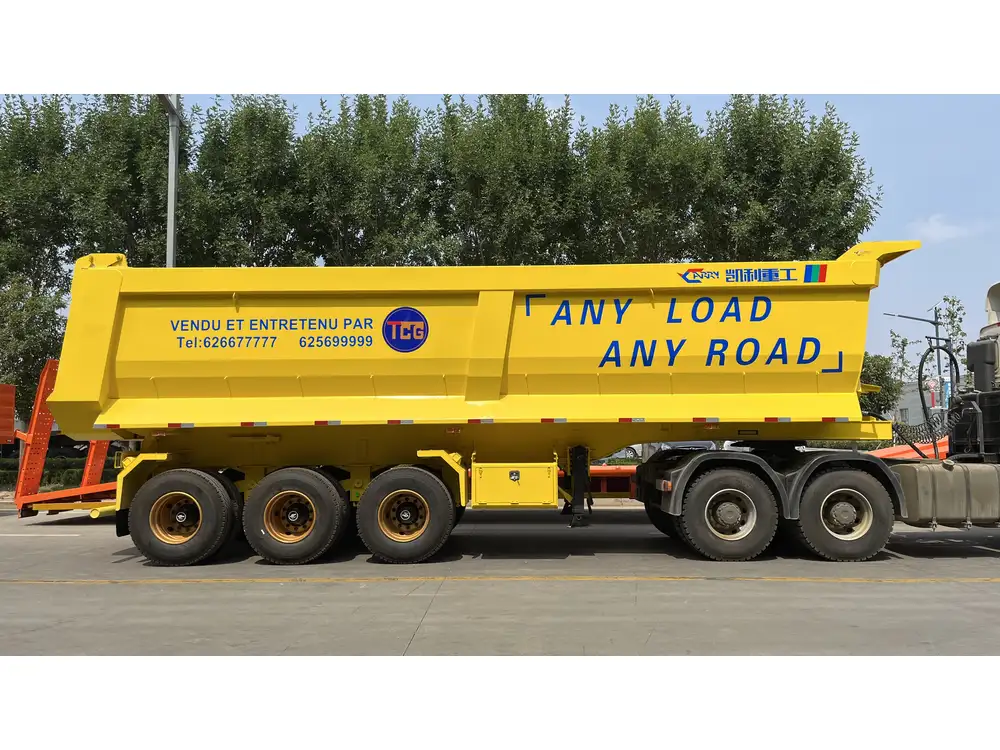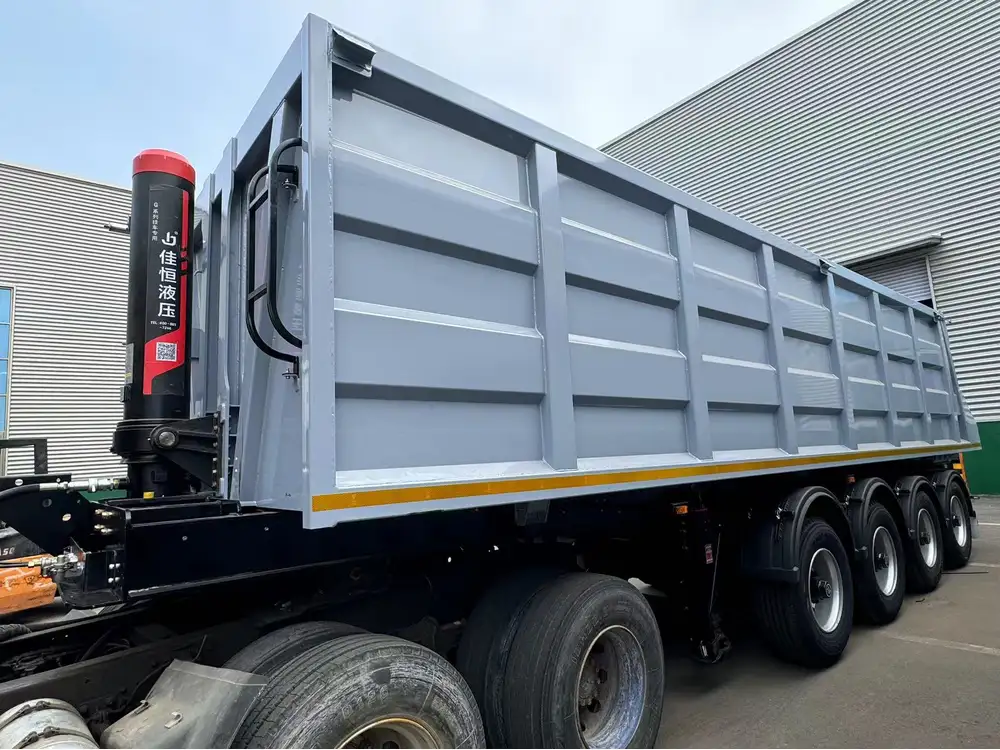Navigating the Complexities of Commercial Vehicle Insurance
In the realm of commercial transportation, operators frequently encounter questions regarding insurance coverage. One prevalent query stands out: Does my semi truck insurance cover my trailer? This article delves deep into the intricate layers of semi truck insurance and trailer coverage, providing valuable insights crucial for both new and seasoned operators.
The Foundation of Semi Truck Insurance
Before examining the specifics of trailer coverage, it’s essential to understand the primary components of semi truck insurance. Generally, commercial truck insurance policies comprise several types of coverage:
| Type of Coverage | Description |
|---|---|
| Liability Insurance | Covers damage to other vehicles and injuries to other parties in an accident. |
| Cargo Insurance | Protects the cargo being transported from loss or damage. |
| Physical Damage Insurance | Covers repairs to your truck due to accidents, theft, or vandalism. |
| Uninsured/Underinsured Motorist Coverage | Protects you if involved in an accident with someone who lacks sufficient insurance. |

Trailer Coverage – A Crucial Element of Your Insurance Policy
When considering whether your semi truck insurance extends to your trailer, there are several pivotal points to evaluate:
Inherent Coverage Limits: Many semi truck insurance policies automatically cover trailers under the physical damage insurance segment. However, this coverage is frequently subject to limitations. For instance, certain policies may not extend coverage to non-owned trailers unless specified.
Understanding “Scheduled Trailers”: In some cases, insurance providers offer the option to schedule trailers explicitly. This means you list each trailer you own on your policy. Scheduled trailers generally enjoy broader coverage, including liability for physical damage.
Intermodal Trailers and Additional Premiums: If you’re using intermodal trailers for shipping, you may need additional policy adjustments. Coverage for these types is often charged at a different premium due to their varied usage.
Does Liability Cover My Trailer?
A question frequently raised is whether bodily injury and property damage liability coverage extends to trailers. The response is nuanced:
- General Liability Coverage: This typically includes liability for trailers that are attached to the insured semi. If the trailer causes an accident resulting in injury or property damage, this coverage may apply.
- Non-Owned Trailers: If a trailer is not owned by the primary insured party, liability coverage may not apply unless explicitly mentioned in the policy. This may present a risk when operating rented or leased trailers.
Cargo and Trailer Insurance: A Symbiotic Relationship
Ensuring that your cargo is adequately protected is vital. Here’s how trailer coverage intermingles with cargo insurance:
- Liability for Cargo: So, if cargo in a trailer suffers damage due to a collision involving the semi truck, the cargo insurance typically steps in.
- Extensive Coverage Options: Many policies also offer supplementary cargo insurance, which covers losses due to theft, leaks, or damages while in transit.

Common Coverage Gaps – What You Need to Know
Awareness of potential coverage gaps regarding trailers is crucial for successful operations. Here are the most common shortcomings professionals encounter:
- Coverage Limits: Standard policies may cap trailer coverage at a specific dollar amount. Operators should review these limits carefully.
- Exclusions for Unattached Trailers: Some policies may not cover trailers that are detached or parked. It’s essential to inquire explicitly about these scenarios.
- Age and Condition of Trailer: Insurers might consider the age and condition of your trailer when determining rates and coverage. An older or poorly maintained trailer may inadvertently incur higher premiums or reduced coverage.
How to Assess Your Coverage Needs
To ensure optimum protection for your semi truck and trailer combinations, follow these methodical steps:
| Step | Action |
|---|---|
| Review Your Current Policy | Examine existing limits and exclusions regarding trailer coverage. |
| Consult an Insurance Expert | Engage with an insurance agent to clarify ambiguities related to your specific scenario. |
| Compare Multiple Quotes | Obtaining quotes from various providers can reveal better coverage options at competitive rates. |
Frequently Asked Questions (FAQs)

1. Is a separate insurance policy required for my trailer?
In most instances, you can cover the trailer under your semi truck insurance; however, for optimal coverage and peace of mind, consider adding an endorsement that explicitly includes trailer coverage.
2. What should I do if my trailer sustains damage while in transit?
If your trailer is damaged during transit, file a claim promptly with your insurance provider. Document all damages with photographs and obtain any relevant police reports to support your claim.
3. Are there special requirements for insuring refrigerated trailers?
Refrigerated trailers, often referred to as reefers, may necessitate specialized coverage due to the high value of the cargo they transport and additional operational costs associated with refrigeration systems.

4. Will my personal auto insurance cover my trailer while it’s attached to my semi?
Typically, personal auto insurance does not extend to commercial operations. For any trailer legally classified as commercial, a dedicated commercial truck insurance policy is advisable.
Understanding State Regulations on Trailer Insurance
Navigating insurance isn’t strictly about policy choices; state regulations play a pivotal role. Each state maintains distinct laws governing vehicle insurance requirements, often mandating:
- Minimum liability coverage for both the truck and the attached trailer.
- Specific registration and equipment standards for all commercial vehicles, including trailers.
The Impact of Trailer Size and Weight on Insurance Rates
Another fundamental aspect that bears consideration is how the trailer’s size and weight influence insurance rates. Larger, heavier trailers incur more risk and are likely to attract higher premiums. Conversely, lightweight trailers may see a reduction in insurance costs but come with different risk factors.
| Trailer Type | Implications for Insurance |
|---|---|
| Standard Trailers | Typical coverage options, may lead to average premiums. |
| Heavy-Duty Trailers | Higher premiums due to increased risk factors. |
| Specialty Trailers | May require specialized policies with unique conditions. |

Engaging with Insurance Providers
When seeking insurance coverage for both semi trucks and trailers, engaging with knowledgeable insurance providers is imperative. Here are tips for effective communication with insurers:
- Preparation: Before approaching agents, gather all relevant information about your vehicles, including VINs, weight ratings, and the types of cargo transported.
- Clarify Your Needs: Clearly articulate your operational needs and ask for detailed explanations of coverage options, exclusions, and limitations.
- Future Changes in Operations: Discuss any upcoming changes in your operations that may necessitate policy adjustments, such as acquiring new trailers or modifying transport routes.
Conclusion: Making Informed Coverage Decisions
In conclusion, whether your semi truck insurance covers your trailer hinges on several factors, including specific policy provisions and state regulations. As an operator, being proactive about understanding and optimizing your insurance coverage is essential to safeguarding your assets and ensuring seamless transportation operations.
By meticulously assessing your policy, understanding potential gaps, and consulting professionals, you position yourself to make informed decisions that enhance your business’s resilience against the unforeseen challenges of the road. Maintain dialogue with your insurance provider and stay abreast of evolving industry standards to ensure continual protection for your trailer and cargo.



